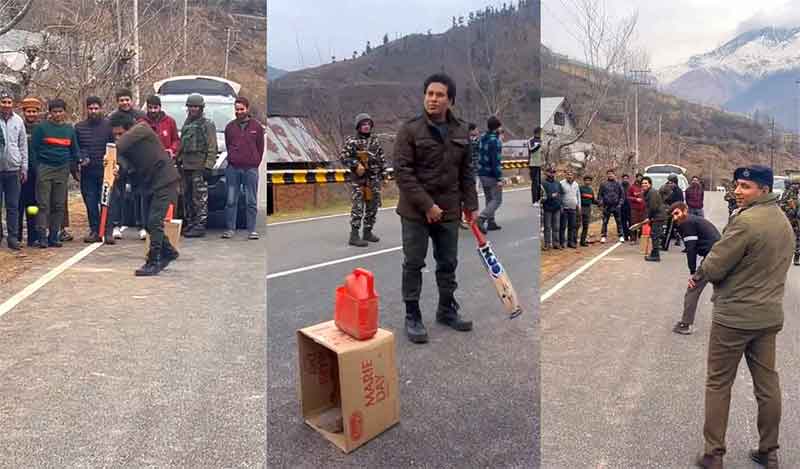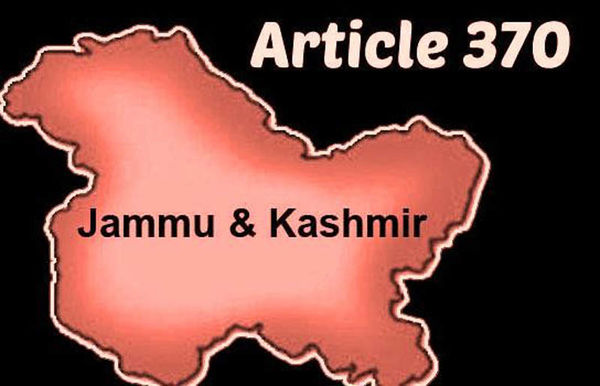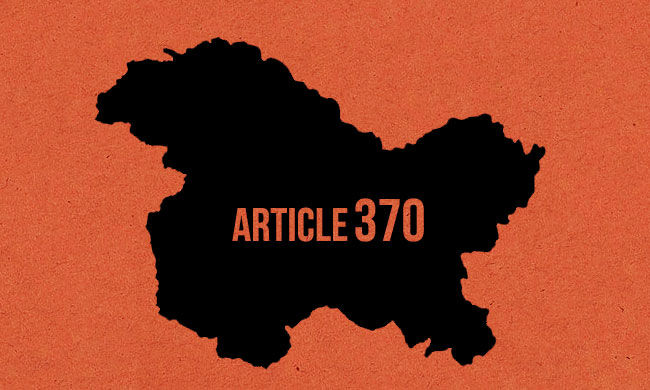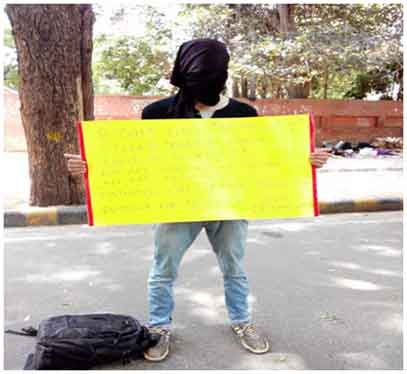
“Often, I think of taking my own life. I go to orchards and choose the place where I had made the gallows. My mother knows that I am going through a lot of stress, so she has become my shadow. The day I saw the helplessness in my brother’s eyes when he was being arrested by Indian security forces for some unknown crime, the helplessness in his eyes had made a hole in my heart. We were not even told where he was taken or the prison he was put in for three months. My mother is a brave woman, she endured gracefully, but I pity my helplessness and insecurity. Better to have a dignified death rather than to bend on knees. But, my mother keeps telling me that she has no shoulder to lean on if I finish my life. Her tears pierce my heart. What is there left in my life except for tears, suffocation, and oppression”.
My heart was missing a beat on every word Raashida of Pulwama was uttering amid sobs and sighs. I had run out of words to comfort her. Comprehending her vulnerable state of mind, I had to try hard to counsel Raashida by citing stories of brave Kashmiri girls who despite so many odds have excelled and stood their ground. I introduced her mother to a psychologist who visited her every week. After a few months of intensive counselling, I noticed a slight change in her attitude. She was now talking of finding ways to get her brother released from prison.
Raashida belongs to the youth of Kashmir that makes up seventy percent of the 13 million population.
They have been brought up in violent turmoil, thus, robbing their childhood and adolescence. All they have inherited are the raids, arrests, crackdowns, protests, killing, and hounding. Not a moment of peace and tranquillity has become their fate. That is the reason why there is an alarming number of youth suicides reported in Kashmir.
On September 14, the news went viral on social media that a Kashmiri youth studying in a college in the Indian state of Punjab had committed suicide by strangling himself. When the picture of this incident reached Kashmir, many fears and apprehensions arose among the frightened population. Parents, in particular, are mired in anxiety over their children’s mental state of health.
According to Sakina, whose son is also studying in a college in Punjab, “Our youth are not safe at home or in the outside world. Like death is chasing them everywhere. Who knows what happened to this boy that made him finish his life. I have called my son back. I want him to stay home. I can’t bear such devastation.”
There have been occasional reports from some Indian states that a Kashmiri youth or labourer or employee has been beaten or lynched to death without any trace. No investigation is expected in such cases that have become new normal in India. Against this backdrop, it is not difficult to conclude that the space is not only being made to shrink for Kashmiris inside the valley but it is also being made hostile for them outside the territory.
You may recall that on August 19, Tariq Butt, a Kashmiri youth who had been working for a financial company for two years, was beaten severely in Gurgaon, Delhi. In the initial report of the incident, the police had said that there was no need to give it a religious colour. Such incidents have made Kashmiris reluctant to go abroad, but employment opportunities within the Valley have almost disappeared.
Most of the young people in the valley are desperate to escape the intimidation and arrests by the security forces. Second, when all employment opportunities are being made scarce, they have become extremely depressed.
Either they prefer suicide or become gunmen. Many agree to die at the hands of the security forces by falsely declaring to be militant. This suits government to create a false narrative of ‘facing terrorism’ in Kashmir.
In May, Shoib, a 23-year-old resident of Damhal Hanjipura, made a video before committing suicide in which he wrote about his father, who was a teacher by profession, that his salary had been withheld for two years due to an adverse police report. The financial situation of the house had deteriorated to such an extent that immediately after consuming the poison, Shoaib had asked his mother, “Mom, why are we so poor?”
A 2016 survey by the international non-governmental organization MSF found that 45% of Kashmir’s population suffers from severe mental illness and some young people have developed a tendency to end their lives rather than survive.
The main Hospital in Srinagar has registered about 500 cases during the last year in which people tried to kill themselves by consuming poisonous substances or by other means. According to police records, 3,024 suicide cases were registered in Kashmir between 2010 and 2020, while in 2020 alone, 457 people attempted suicide.
London-based Kashmiri-born psychiatrist, Dr. Mudasir Firdossi recently wrote in his article that “the violent situation in Kashmir has indeed left young people in a state of mental distress and they are beginning to feel helpless. But, media is playing a very negative role that portrays the suicidal person as a superhero in reporting suicide incidents. Many videos in Kashmir encourage other young people to end their lives like heroes”.
Some human rights groups say the rising tide of suicides is due to the chaotic economic situation, which has worsened since August 5, 2019, when the Indian government decided to end the internal autonomy of the erstwhile state of Jammu and Kashmir. Strict restrictions were imposed on the movement of the people with a total ban on the internet and other communication, which has deprived millions of people of their jobs or trade. The covid19 lockdown has reduced the population to beggary.
Human rights activist Raja Hanif says, “The Indian government wanted to punish the people collectively for demanding freedom. Thus, revoked Art370 and 35A, banned all the means of communication, closed all connections with the state, and turned it into a big concentration camp, weakening it economically and politically. The tragedy is that the Kashmiris are being crushed in every possible way and people are forced to keep their mouth shut or face draconian laws”.
The situation within the territory is far from normal as emphasized by former minister, Yashwant Sinha but no matter how bad the situation goes, Kashmiri youth have to get a hold of their lives, survive with dignity and chase their dream with courage and determination.
Nayeema Ahmad Mahjoor is a senior journalist and penguin author of ‘lost in terror’














































